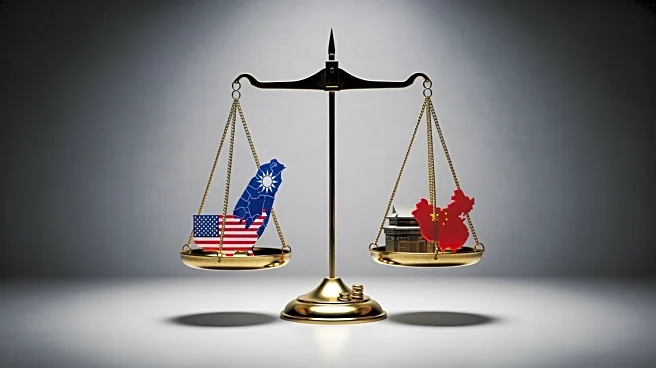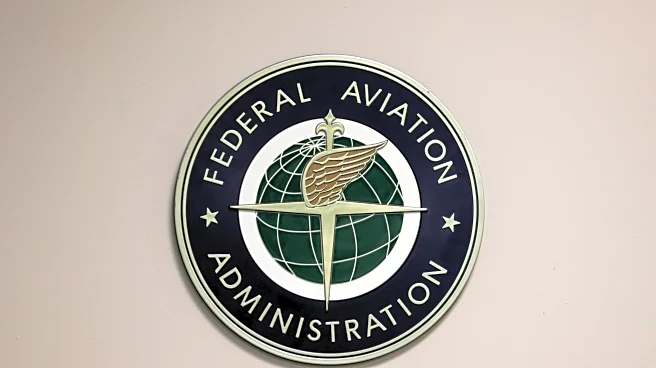What's Happening?
The relationship between Taiwan, the United States, and China has been marked by diplomatic challenges and military tensions since the establishment of diplomatic relations between the U.S. and China in 1979.
The Taiwan Strait, separating Taiwan from mainland China, is a focal point of these tensions. The U.S. initially recognized the Republic of China (ROC) as the legitimate government of China, but shifted its recognition to the People's Republic of China (PRC) in the 1970s. This change led to the Taiwan Relations Act, which aimed to provide Taiwan with defense capabilities despite the lack of formal recognition. The PRC views Taiwan as an internal issue and has consistently opposed U.S. interference, while Taiwan has moved towards democracy, holding free elections since the 1990s. The PRC has proposed reunification under a 'one country, two systems' model, which Taiwan largely opposes due to concerns over autonomy and security.
Why It's Important?
The ongoing tensions between Taiwan, the U.S., and China have significant implications for international relations and regional security. Taiwan's strategic position and its democratic governance contrast sharply with China's one-party system, making it a focal point in U.S.-China relations. The U.S. commitment to Taiwan's defense under the Taiwan Relations Act underscores its strategic interest in maintaining stability in the Asia-Pacific region. China's military posturing and refusal to renounce the use of force against Taiwan highlight the potential for conflict, which could involve the U.S. and impact global security. The situation also affects economic relations, as Taiwan is a key player in global technology supply chains, and any disruption could have widespread economic consequences.
What's Next?
The future of Taiwan-U.S.-China relations remains uncertain, with potential for both diplomatic engagement and military escalation. The U.S. continues to maintain a stance of strategic ambiguity regarding its response to a potential Chinese attack on Taiwan. Meanwhile, Taiwan is strengthening its military capabilities to deter aggression. Diplomatic efforts may focus on reducing tensions and finding a peaceful resolution, but China's insistence on reunification and Taiwan's desire for autonomy present significant obstacles. The international community, particularly the U.S., will likely continue to play a crucial role in shaping the dynamics of this complex relationship.
Beyond the Headlines
The Taiwan issue raises broader questions about sovereignty, self-determination, and international law. The PRC's claim over Taiwan challenges the principles of democratic governance and human rights, as Taiwan's population largely favors maintaining its current status or pursuing independence. The situation also reflects the geopolitical struggle between democratic and authoritarian regimes, with Taiwan serving as a symbol of resistance against China's expanding influence. The ethical implications of supporting Taiwan's autonomy versus acknowledging China's territorial claims continue to be debated in international forums.










